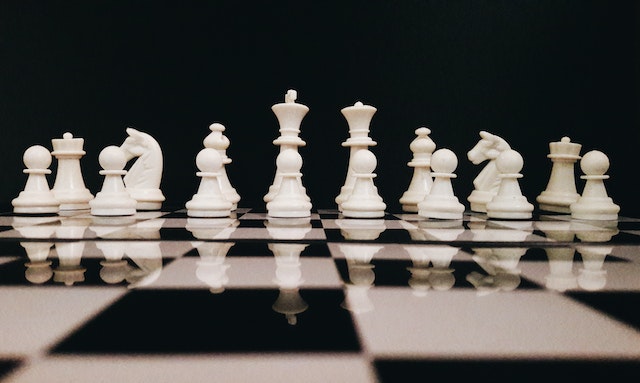Can we enjoy playing chess more than video games?
By Delores Keeper
The games we play as children mirror the experiences we have as adults. Games aren’t just things we play to pass the time; games are opportunities to develop life skills. Play is the perfect way to prepare us for the demands of adulthood.
The Evolution of Games
Humans have always enjoyed their games. From chess to the latest version of Scattegories to the newest gaming system, games are part of our lives. They all teach valuable lessons. Every game has an impact on the way we think.
Social interaction and intelligence have always been considered necessary. Games have been used for thousands of years to highlight both. Now they have taken on a life of their own. They began as a way to come together and communicate. Now they can be played in the palm of your hand. It used to be necessary to go outside and have space to play games with real toys and tools. Now you can play one on a screen without having to leave the couch.
No matter the growth of games. No matter the transition of gaming from being outside with nature to inside and sedentary, they all come with a history. Some games, however, stand head and shoulders above the rest.
The Most Fitting Example is Chess
Chess has been played by everyone from child prodigies to kings and queens. It’s been played outside at the park and inside prisons. Chess has no boundaries in location or language. While the game is basic, its simplicity is what keeps it a favorite.
You can play video games to build computer skills. Video games also develop hand-eye coordination. Games like “hopscotch” and “red rover” also help with coordination. Many games are focused on physicality, but chess is different.
You learn the simple moves of the pieces on the board. Each piece moves in a certain way, and that is the scope of their responsibility. It’s their character. It’s what they do and how they make an impact on their world, the chessboard. Some pieces have small moves and others have big moves, but each piece can have significant influence depending on what is done with it. Each move that is made determines that piece’s impact, and each piece has a lifespan dependent on how you play.
Chess teaches many life skills. It teaches responsibility because you are the one who moves your pieces. Chess teaches cause and effect. You only get one move at a time, and each move leads to a counter-move by your opponent. Chess teaches you strategy and how to think a few steps ahead. Chess unlocks your creativity as you come up with new ways to move and see your pieces. The style that you develop can manipulate your opponent’s moves or provide momentum to help you win. Additionally, chess tests and builds discipline and patience as you play the game.
Moving slow and slow-moving are two different things. You ‘move slow’ when you don’t have enough information. Slow-moving means deliberate thinking. Chess provides you with all the information and encourages deliberate thinking, another useful life skill.
Chess can teach you everything you need to know about life. You can learn discipline, development, faith, focus, strategy, growth, and more. It can be played anywhere. People may speak different languages, but they can communicate through a chessboard. This universality reveals the beauty of the game.
In today’s world, gaming has taken a back seat to education. Both are important, but learning can be more natural in a game than in a more formal environment. Video games have led to an interest in programming and computer science, but familiarity with video games and computers doesn’t give the mental training and discipline that is required for the arduous hours of sitting in front of a computer creating the software of our modern world. Chess hones these mental skills. This mental training reveals the value of the game.
Today’s world needs people with better and more soft skills. We are heavy on the hard skills – teachable abilities and easily quantifiable skill sets – but light on the soft skills of interacting with people. Chess develops those soft skills while also developing the kind of thinking needed to apply the hard skills in life.
Whether you learn to play chess on a computer, picnic table, or phone, you learn essential soft and hard skills that enable you to impact your world more effectively.
Delores Keeper has been playing chess for over 50 years. Some tournaments, some teams, but mostly just for the enjoyment of the game. Her love for the game has led to creating her own website selling chess sets. Delores has searched the world over for different chess sets of all types and styles and you will be amazed at the variety available. To see this amazing selection of chess sets, visit [https://ChessSetsPro.com](https://ChessSetsPro.com).
Article source: https://articlebiz.com

